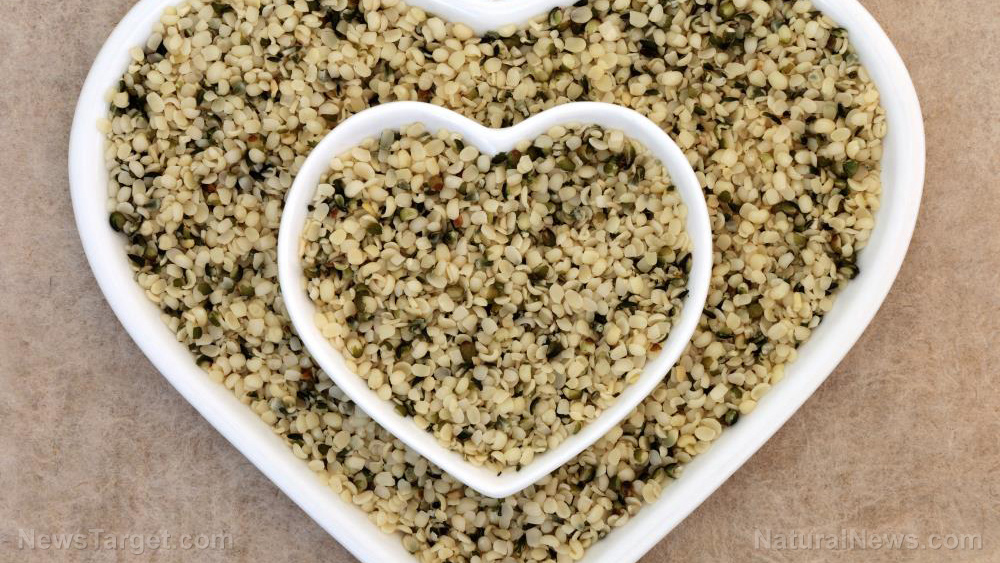Study shows that a diet full of fiber and whole grains can help lower your risk of disease
03/31/2019 / By Michelle Simmons

Fiber and whole grains are known to be an important part of one’s diet. Eating whole grains and foods rich in fiber provides many health benefits. New research adds another benefit of fiber and whole grain consumption: They may lower the risk of non-communicable diseases. Published in the journal The Lancet, this new series of systematic reviews and meta-analyses found that people who consume more fiber and whole grains have lower rates of non-communicable diseases in comparison to those who eat lesser amounts.
This research, commissioned by the World Health Organization (WHO), included 185 observational studies that contain data that relate to 135 million person-years, as well as 58 clinical trials that include a total of 4,635 adult participants — all of which were carried out over almost 40 years. The current study only included healthy participants. The researchers concentrated on early deaths caused by coronary heart disease, cardiovascular disease, and stroke. They also looked at the incidence of these diseases, as well as the incidence of Type 2 diabetes and various forms of cancers such as colorectal, breast, endometrial, esophageal, and prostate cancers.
The researchers found that people who consume the highest amount of fiber were 15 to 30 percent less likely to die from cardiovascular disease. This means 13 fewer deaths and six fewer cases of coronary heart disease for every 1,000 participants in the studies. Those who eat the highest amount of whole grains saw similar benefits, with a 13 to 33 percent decline in risk – 26 fewer deaths and seven fewer cases of coronary heart disease. Fiber consumption also led to reduced body weight and cholesterol. (Related: Fiber reduces inflammation, reducing risk of inflammatory diseases and the rate of mortality.)
For every eight gram (g) increase in daily fiber intake, total deaths and incidences of heart disease, Type 2 diabetes, and colon cancer dropped by five to 27 percent. The risk for stroke and breast cancer also increased. The ideal dietary fiber intake to reap these health benefits would be 25 g to 29 g each day, and higher consumption could provide even more protection.
For every 15 g more of whole grains each day, total deaths and incidences of coronary heart disease, Type 2 diabetes, and colon cancer fell by two to 19 percent. Eating whole grains also resulted in lower body weight. Diets with low glycemic index and low glycemic load only prevented Type 2 diabetes and stroke. This may be due to some foods with low GI and GL may also contain added sugars, saturated fats, and sodium.
“Our findings provide convincing evidence for nutrition guidelines to focus on increasing dietary fiber and on replacing refined grains with whole grains. This reduces incidence risk and mortality from a broad range of important diseases,” said corresponding author Dr. Jim Mann of the University of Otago in New Zealand.
However, the researchers also noted that eating too much fiber might be harmful to those with low iron or mineral levels, as high amounts of whole grains can further lower iron levels.
How to add fiber to your diet?
Although many people still don’t get enough fiber, adding it to your diet is quite simple. You can add fiber to your diet by eating whole-food carb sources, such as fruits, starchy vegetables, and legumes. When eating fruits and vegetables like apples, cucumbers, and sweet potatoes, don’t remove their skin for they are rich in fiber. Snacking on nuts and seeds, or adding them to recipes, also gives you fiber, as well as protein and healthy fats. You can also get fiber from whole grains, such as oatmeal, brown rice, amaranth, barley, buckwheat, bulgur wheat, farro, freekeh, millet, quinoa, and wheat berries.
Read more news stories and studies on how to protect yourself from diseases by going to Prevention.news.
Sources include:
Submit a correction >>
Tagged Under:
dietary fiber, fiber, food cures, food is medicine, food science, non-communicable diseases, prevention, Whole Foods, whole grains
This article may contain statements that reflect the opinion of the author
RECENT NEWS & ARTICLES
Natural.News is a fact-based public education website published by Natural News Features, LLC.
All content copyright © 2018 by Natural News Features, LLC.
Contact Us with Tips or Corrections
All trademarks, registered trademarks and servicemarks mentioned on this site are the property of their respective owners.






















